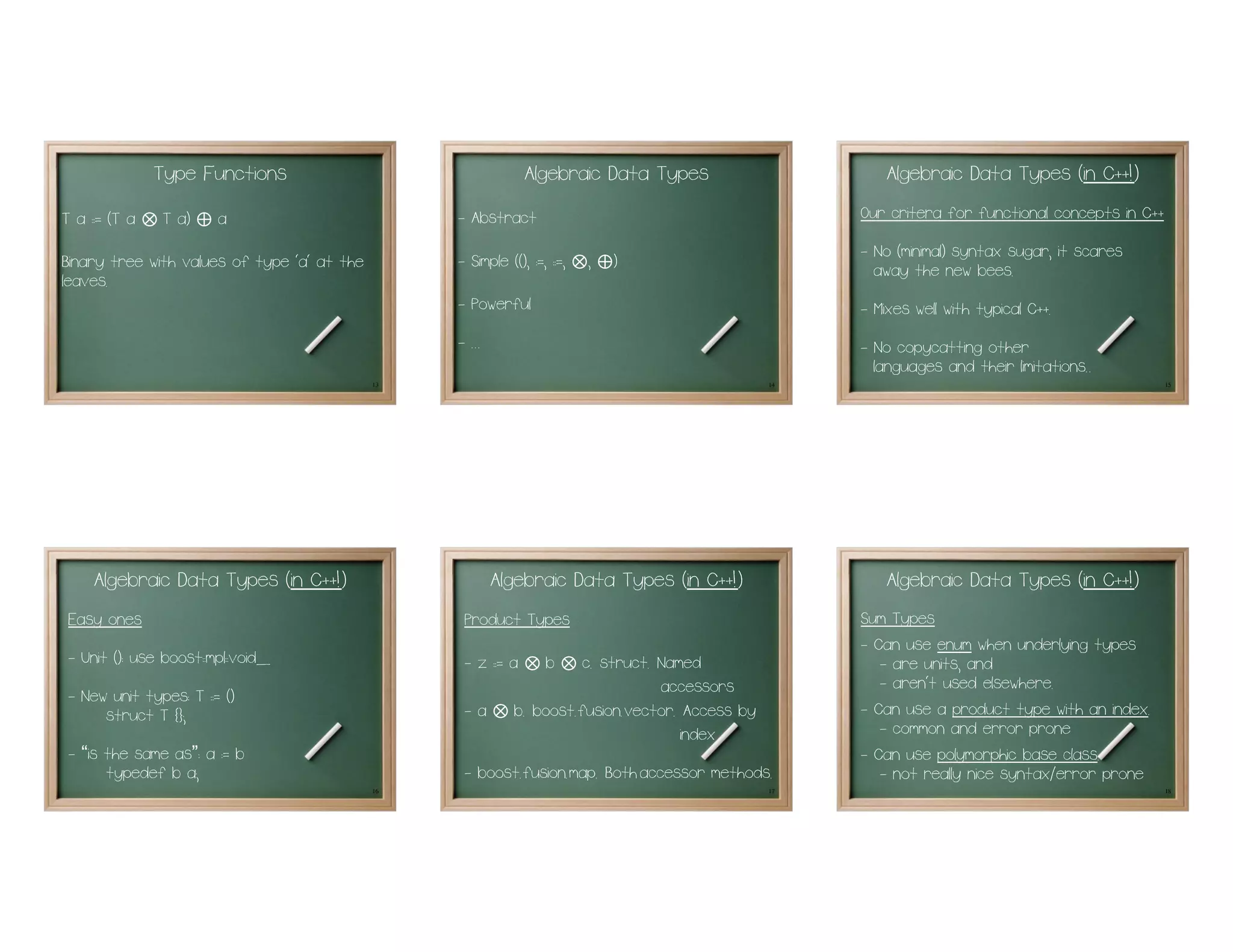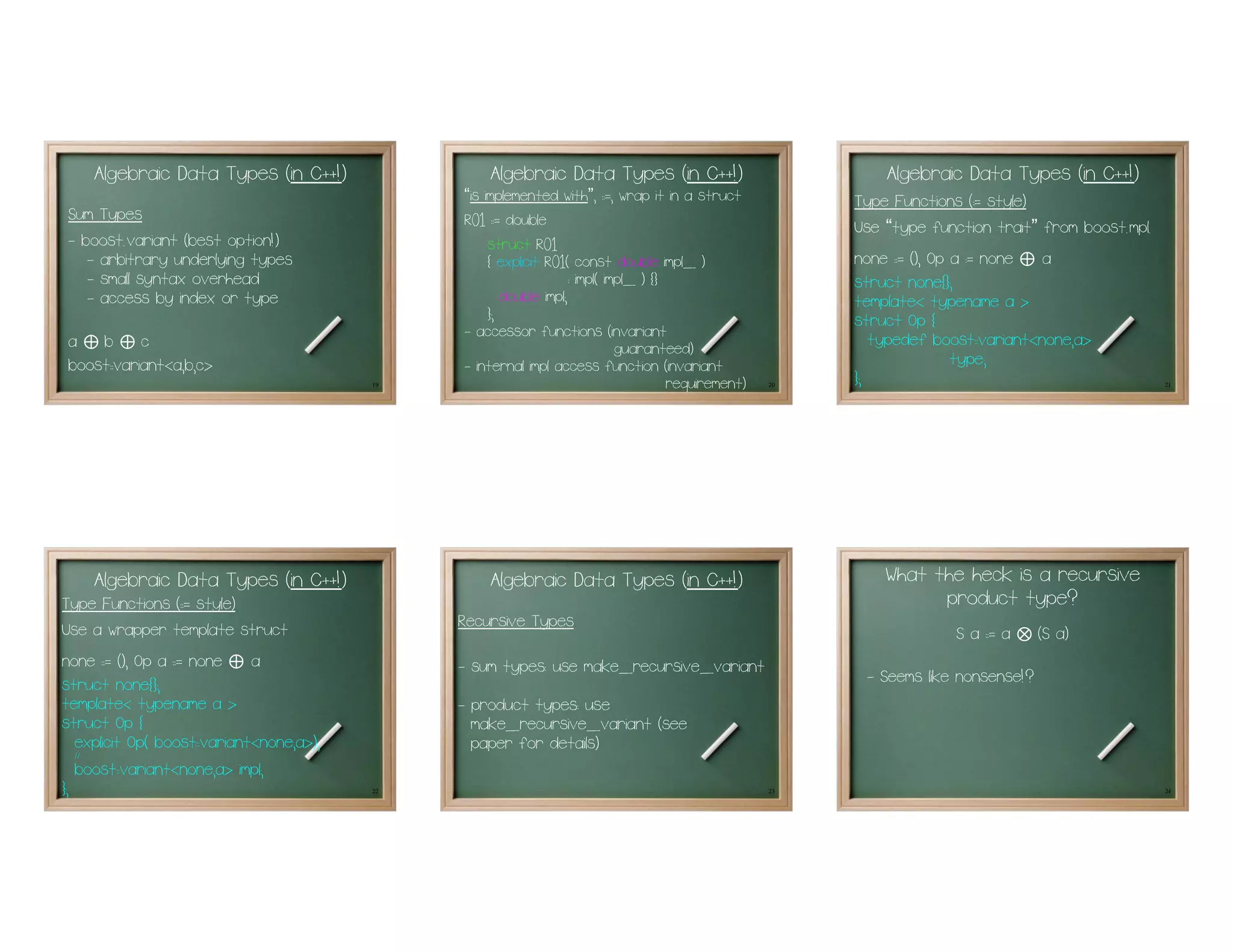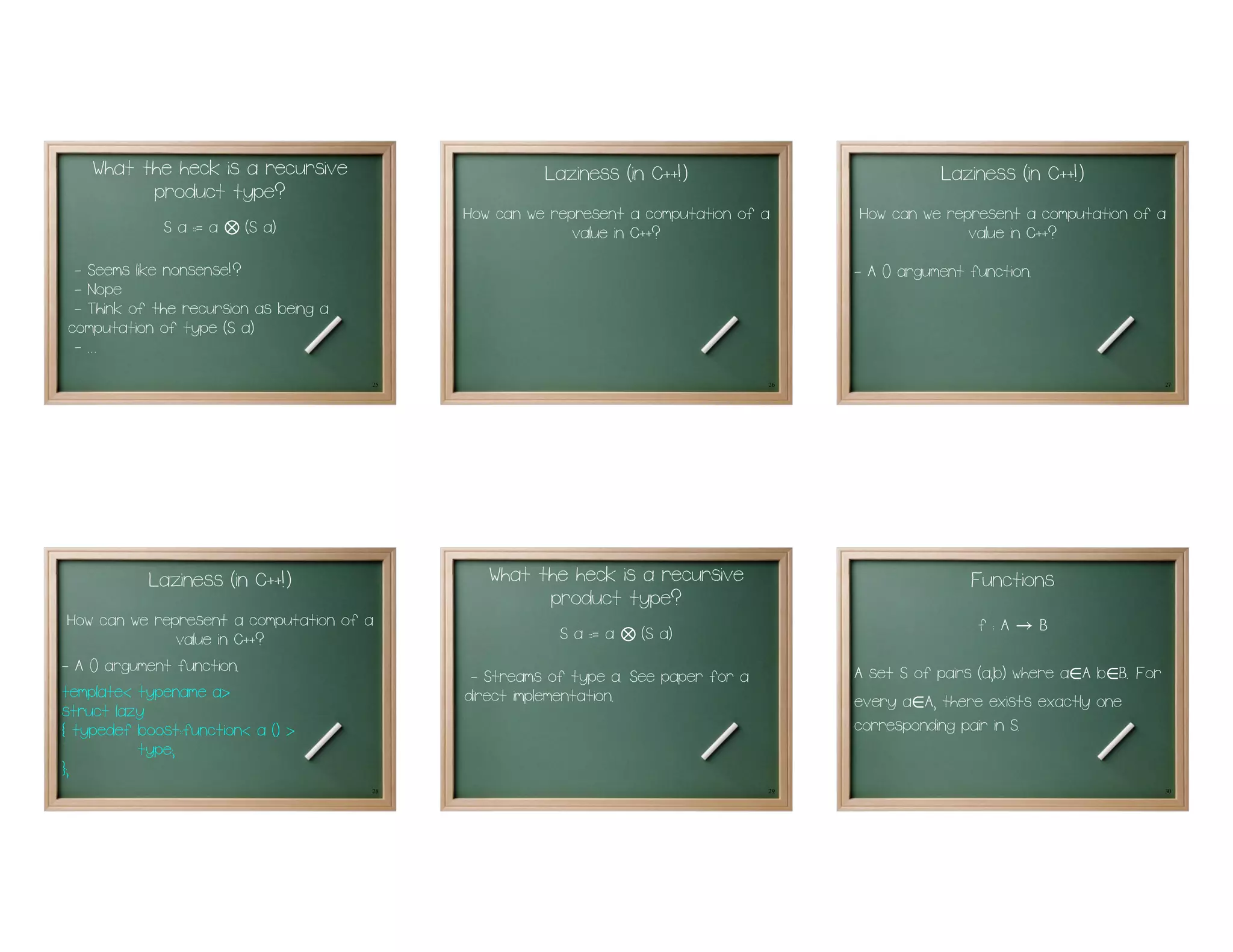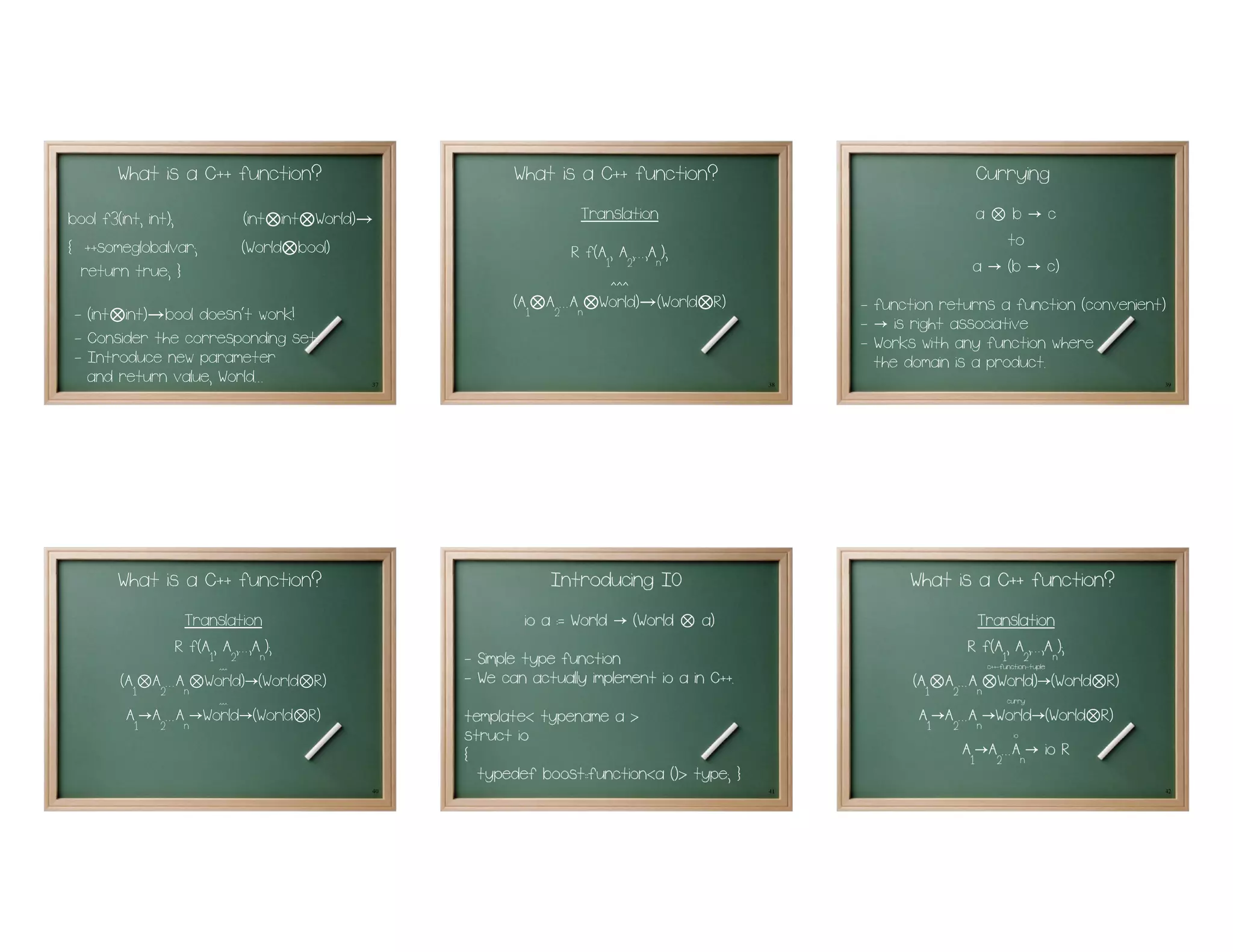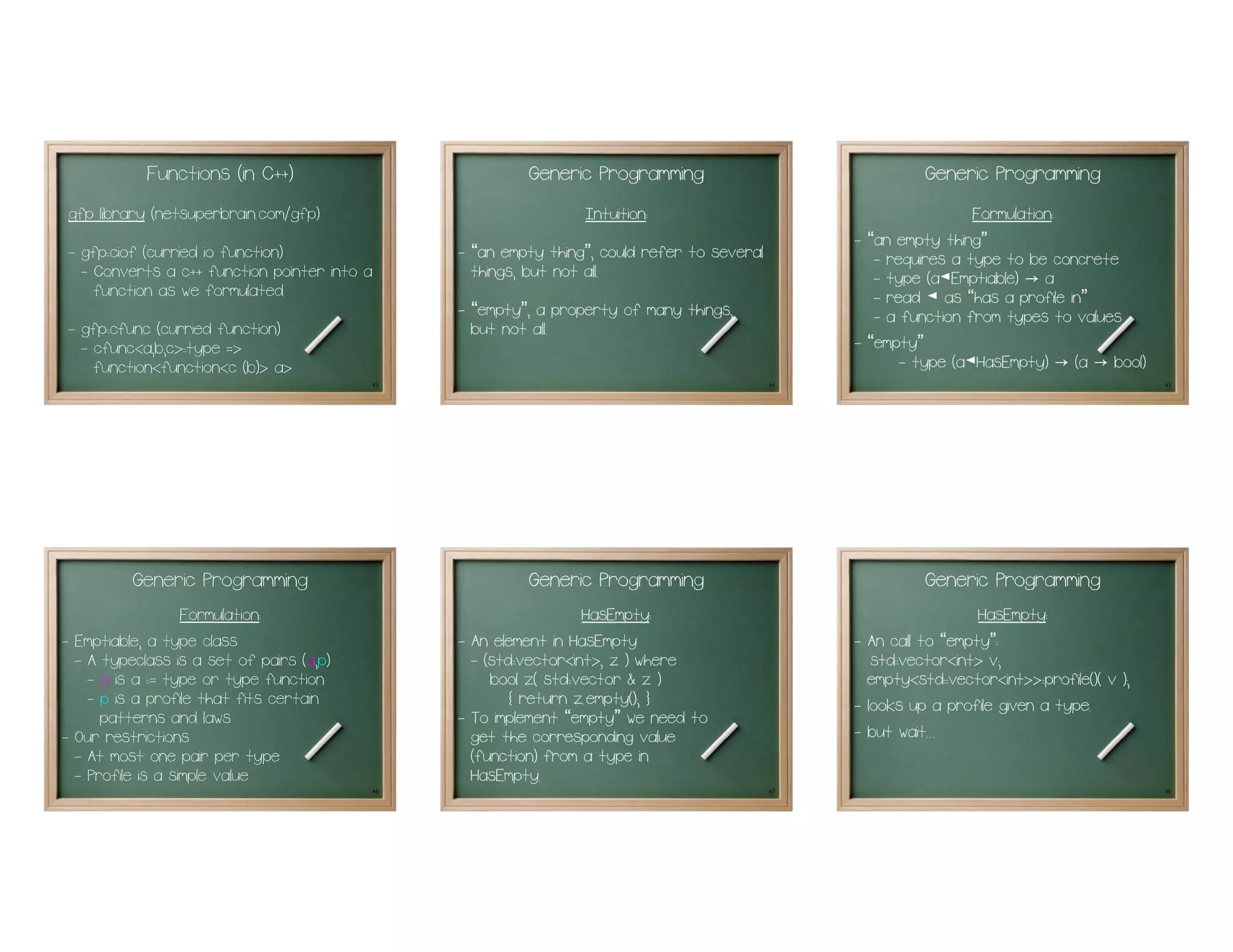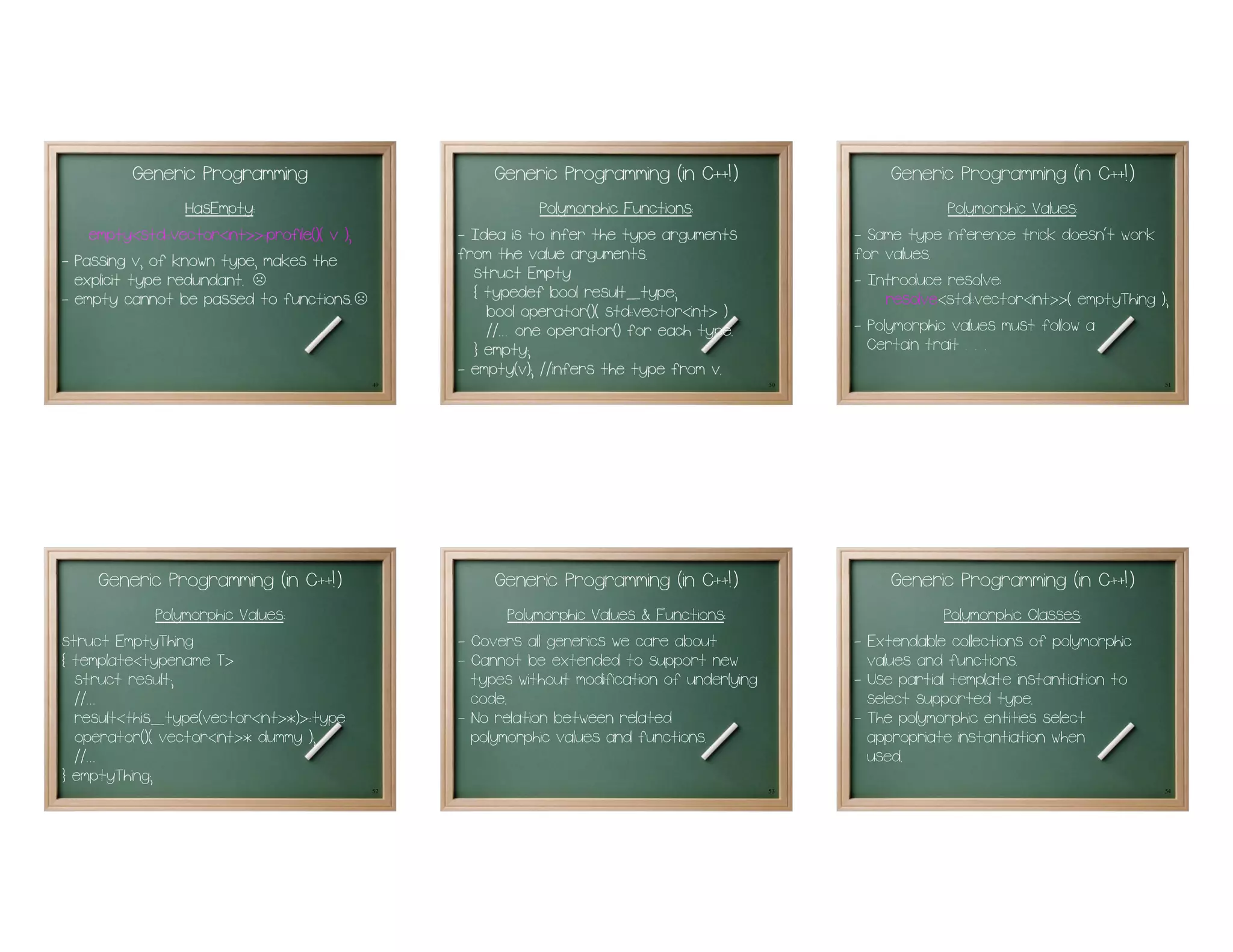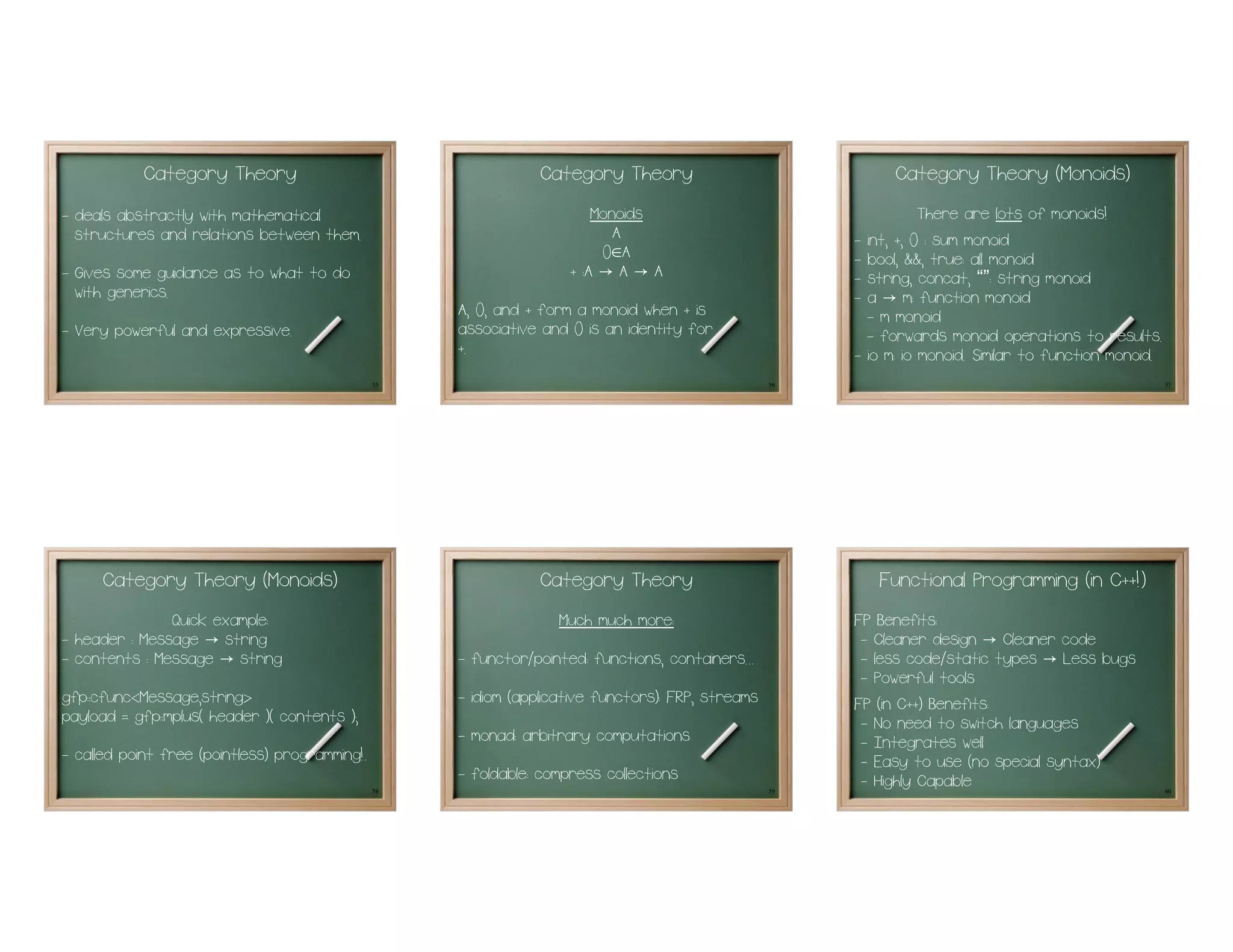This document discusses algebraic data types and functional programming concepts in C++. It begins by defining algebraic data types like unit, product, and sum types using common notation. It then provides examples of implementing these types in C++ using techniques like boost variants and recursive types. The document also discusses implementing functional concepts in C++ like laziness using function objects, currying using the gfp library, and generic programming using type classes. It concludes by introducing category theory concepts and how they relate to functional programming.
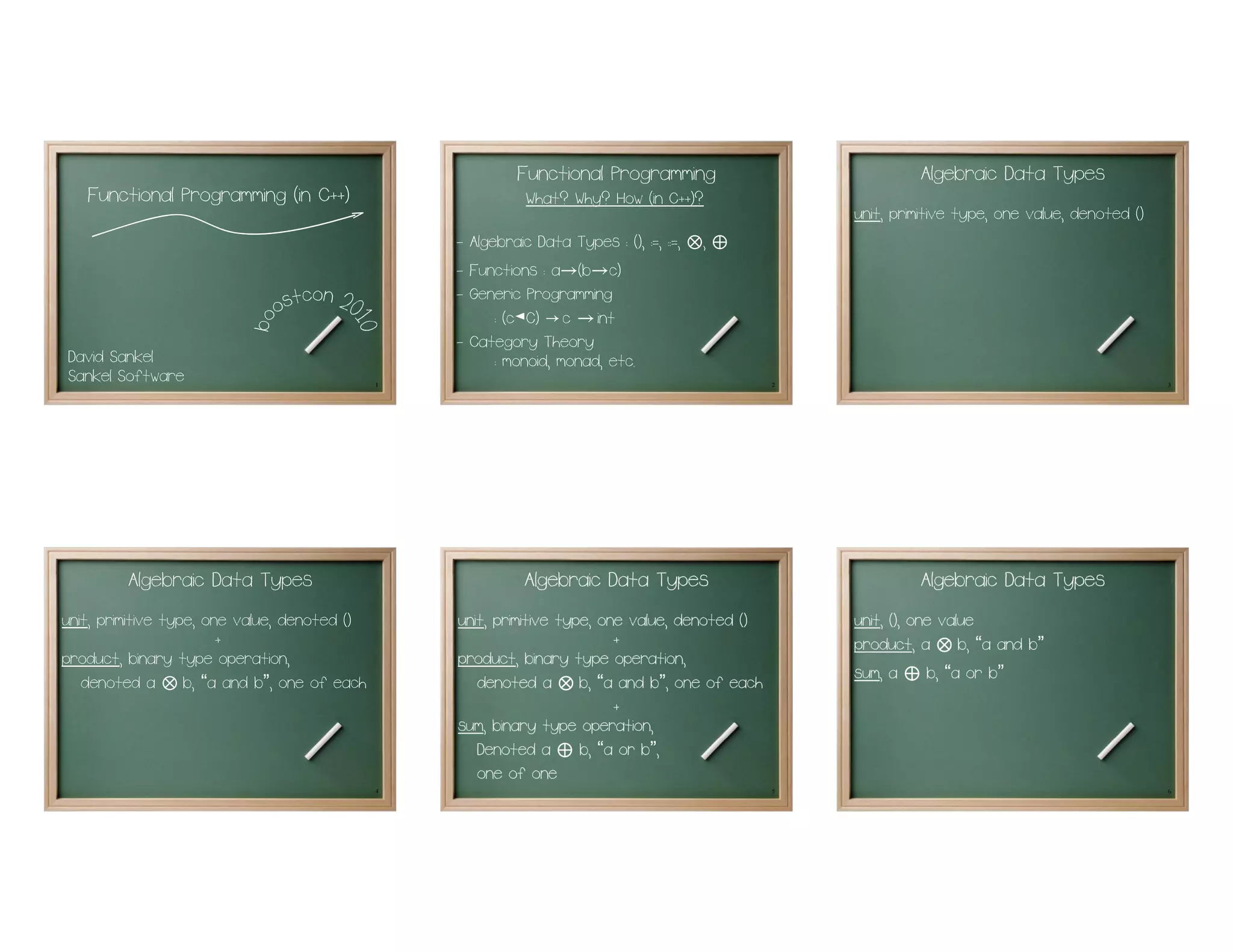
![Algebraic Data Types Examples: Examples:
unit, (), one value true : = () Z : = ()
product, a b, “a and b”
⊗ false : = () N := Z ⊕ N
sum, a b, “a or b”
⊕ bool := true ⊕ false
is the same as, a := b Z is implemented with unit.
is implemented with, a : = b true is implemented with unit. A N value is the same as a Z value or an N
false is implemented with unit. value.
A bool value is the same as a true value or
a false value.
7 8 9
Examples: Type Functions Type Functions
Z : = () Add parameter on left side of : = or := [] : = ()
N := Z ⊕ N symbol that can be used on the right. L a := [] ⊗ ⊕ (a L a)
[] : = () Say ai is a value of type a. and e is the
z Z
∈ L a := [] ⊗ ⊕(a L a)
N0 = (0,z) value of type [].
A value of “L of a” is either a
N1 = (1,N0) = (1,(0,z)) (0,e)
(1,(ai,(0,e))
N2 = (1,N1) = (1,(1,(0,z))) value of [] or (a value of a and a value of
10
“L of a”). 11
(1,(aj,(1,(ai,(0,e))
12](https://image.slidesharecdn.com/presentation-100717214440-phpapp01/75/Functional-Programming-in-C-2-2048.jpg)
